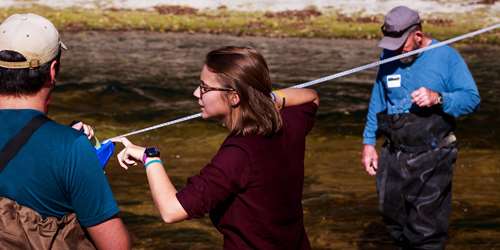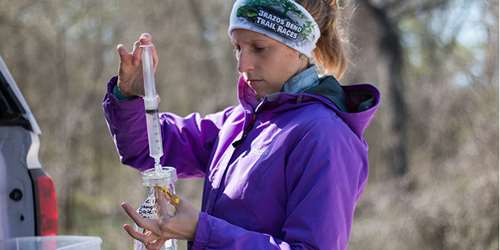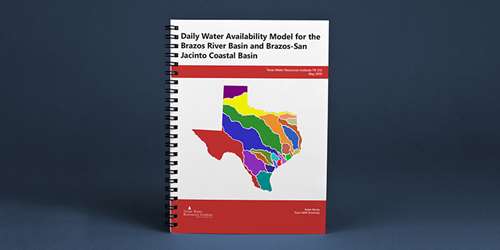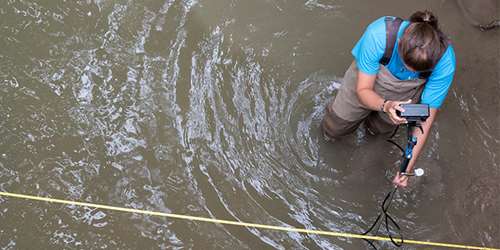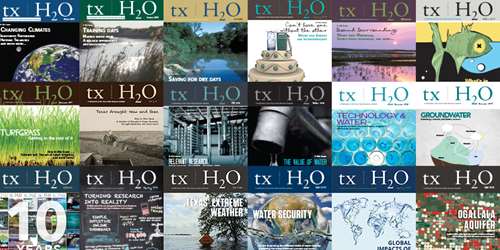The Texas Water Journal published a commentary in the Volume 10, Number 1, 2019 issue titled “86th Texas State Legislature: Summaries of Water-related Legislative Action” by Ken Kramer, Christopher Mullins, Dean Robbins, Stacey Allison Steinbach, Leah Martinsson, Trent Hightower, and Perry L. Fowler.
Read MoreThe Urban Riparian and Stream Restoration Program of the Texas Water Resources Institute will host an Urban Stream Processes and Restoration training from 8:30 a.m.-4 p.m. Sept. 19 in McKinney for professionals interested in conducting stream restoration projects in and around the Dallas area.
Read MoreTexas Water Resources Institute staff report positive results in one East Texas watershed and substantial progress in another while working with stakeholders and a team of university researchers and agency staff to improve water quality in the region’s many watersheds.
Read MoreTexas Water Resources Institute research assistant Anna Gitter bridges the gaps between environmental science and public health, scientists and nonscientists, and fieldwork and computer work.
Read MoreMore than 150 participants from 13 states and South Africa attended the recent Southern Region Water Conference, “Improving Adoption of Sustainable Water Management Practices,” hosted by the Texas A&M AgriLife Extension Service in College Station.
Read MoreUpdated editions and new manuals for the Water Rights Analysis Package, a computer modeling system that simulates river and reservoir systems and assesses water availability under specified alternative sets of conditions, were recently added to the Texas Water Resources Institute (TWRI) website.
Read MoreThe Texas Water Resources Institute has awarded U.S. Geological Survey graduate research grants to two students for June 2019 – June 2020.
Read MoreAugust is Water Quality Month, and we are sharing information from the Water Security issue of txH2O, How does water quality monitoring work?, an explainer on the process of watershed restoration.
Read MoreFor Water Quality Month, start adopting these practices to contribute to improved water quality in your community.
Read MoreWith populations increasing, there is an increased likelihood of the need for intensive water reuse, according to experts. August’s txH2O highlight is Safe water = Secure water, an article about Texas A&M University researchers studying ways to remove more chemicals from water during the treatment process.
Read More

